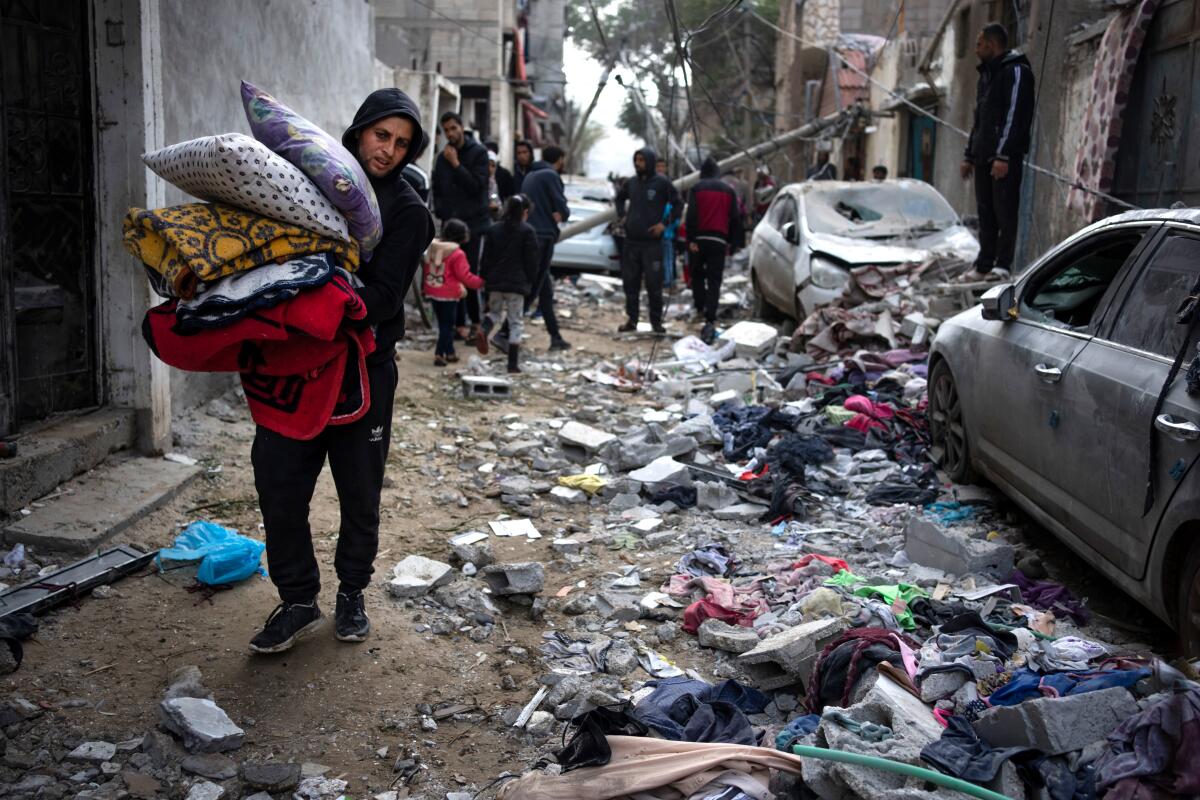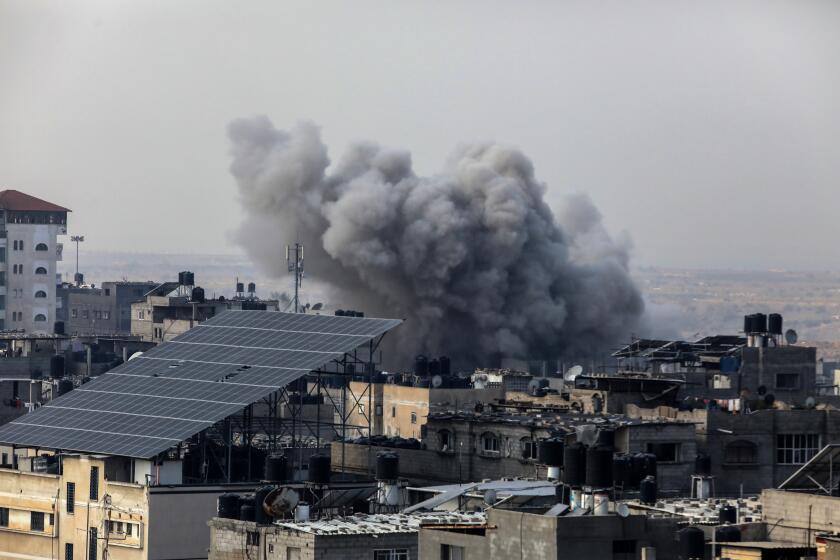The U.S. cannot let Israel carry out a slaughter in Rafah

- Share via
The ostensible target in the looming Israeli ground attack on the Gaza border city of Rafah is Yahya Sinwar, allegedly the mastermind of the murderous Oct. 7 Hamas terror attack.
But the five months of killing and destruction suggest that the Israeli government’s actual goal is retaliation. The campaign in Gaza has been, in President Biden’s words last week, “over the top.”
Israel’s quest to root out Hamas has inflicted indiscriminate death and destruction on Gaza and Palestinian civilians. Humanitarian pauses are no longer enough.
That’s putting it mildly. According to the Gaza Health Ministry, more than 28,000 Palestinians have been killed in the counterattack, and an estimated 80% of buildings in the northern part of the territory have been destroyed or damaged beyond repair by repeated bombings. The vast majority of Gaza’s more than 2 million people have left their homes to avoid the unrelenting attacks, but the borders are closed and there is no escape, so for many their only choice was to head south. To Rafah.
The city is now crowded with tents. A majority of their occupants are refugees several times over, as their families fled first from Israel proper, then from within Gaza and the West Bank. The region is in the midst of a humanitarian disaster, with lack of access to food, water and shelter exacerbating the grief and horror of violence and death.
United Nations aid chief Martin Griffiths said that continued military operations in Israel could lead to “a slaughter” in Gaza. “We lack the safety guarantees, the aid supplies and the staff capacity to keep this operation afloat,” he said in a statement.
The Middle East boils down to a contest between a desire to exterminate the enemy and a desire to live in peace. The U.S. should weigh in on the side of peace.
As Israel was preparing its full-scale ground assault, the U.S. was attempting with other nations to broker a cease-fire that would permit the return of the more than 100 hostages still held by Hamas and a road map toward a more far-reaching settlement that would secure Palestinian statehood. Biden has attempted to use the United States’ position as Israel’s staunchest ally and the supplier of much of its military arsenal to moderate the actions of Prime Minister Benjamin Netanyahu.
But Netanyahu has reportedly pulled out of the talks, continuing to humiliate Biden and mock U.S. power to influence his actions. That leaves Biden in a bind. His best instinct is to stand by an ally, especially when it is under attack. But Netanyahu not only insists on continued destruction of Gaza; he rejects Palestinian nationhood, and any postwar future that includes a reasonable prospect of self-determination for Gaza’s people. That makes Biden and the U.S. parties to the unfolding disaster.
In defense against terrorism and support for allies, there must be a line. Israel has now crossed it repeatedly. It’s time for the U.S. to say “no” to arming and funding the destruction of Gaza, and to use its muscle to bring Israel to the table, rescue Gaza’s suffering people and stop the slaughter.
More to Read
A cure for the common opinion
Get thought-provoking perspectives with our weekly newsletter.
You may occasionally receive promotional content from the Los Angeles Times.











